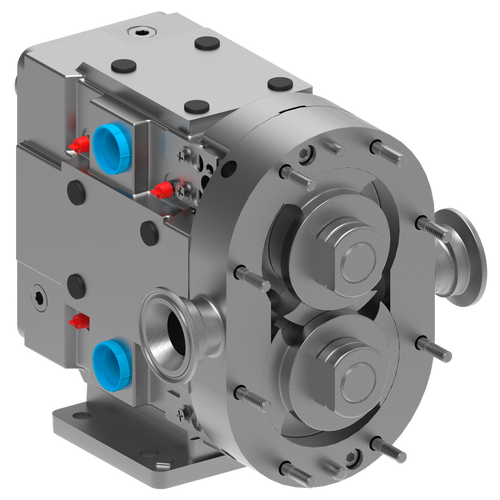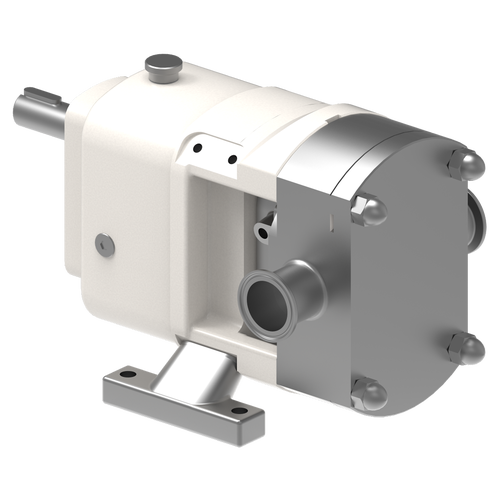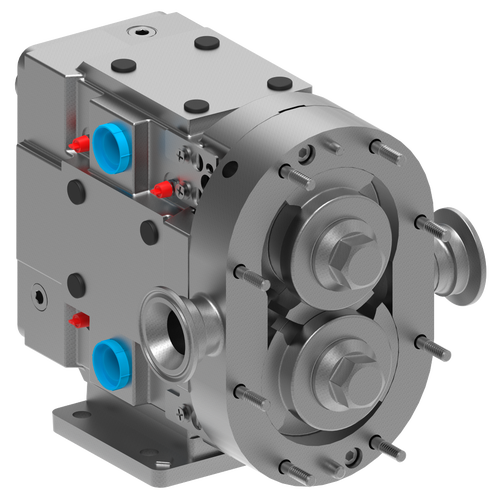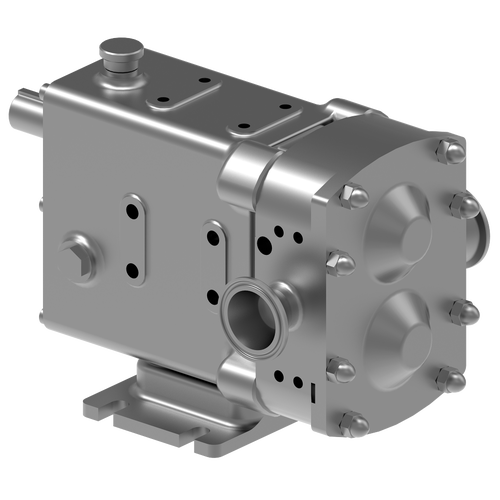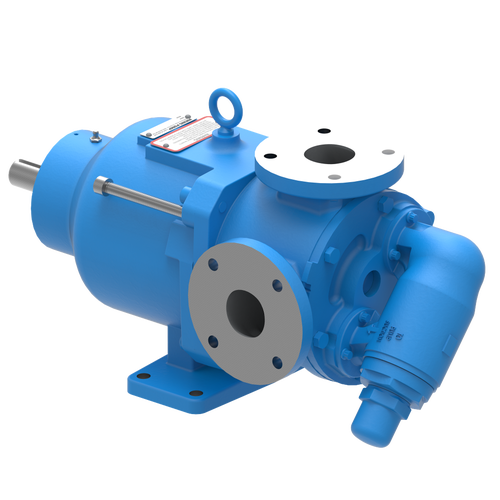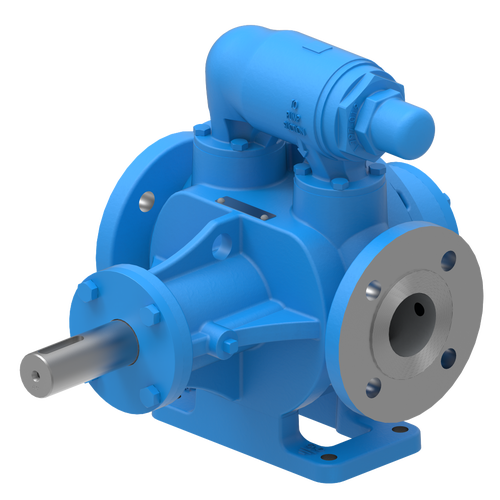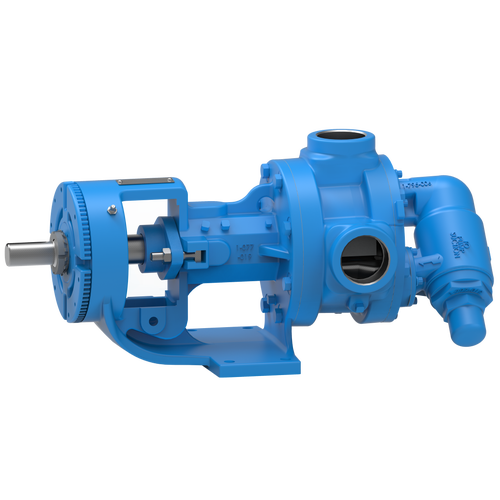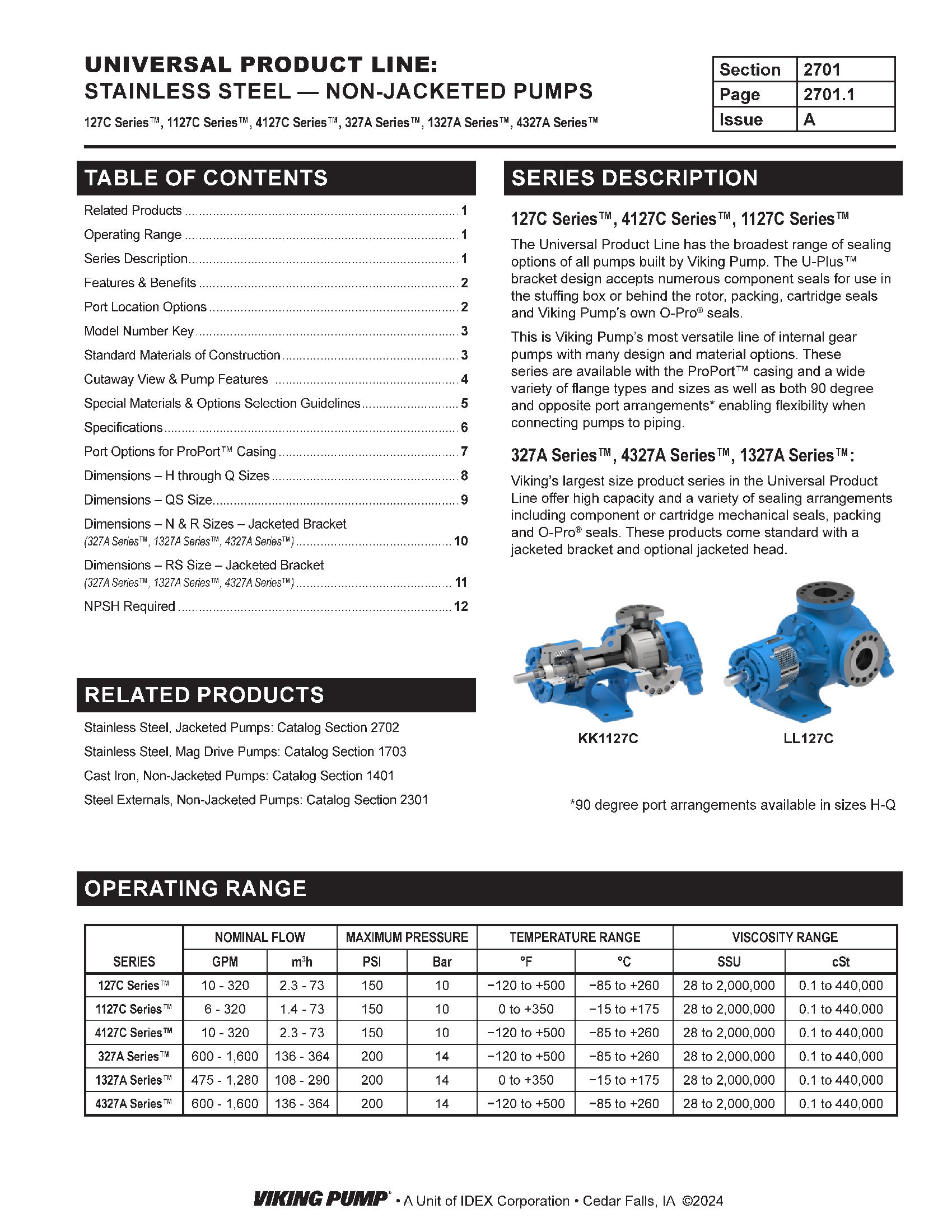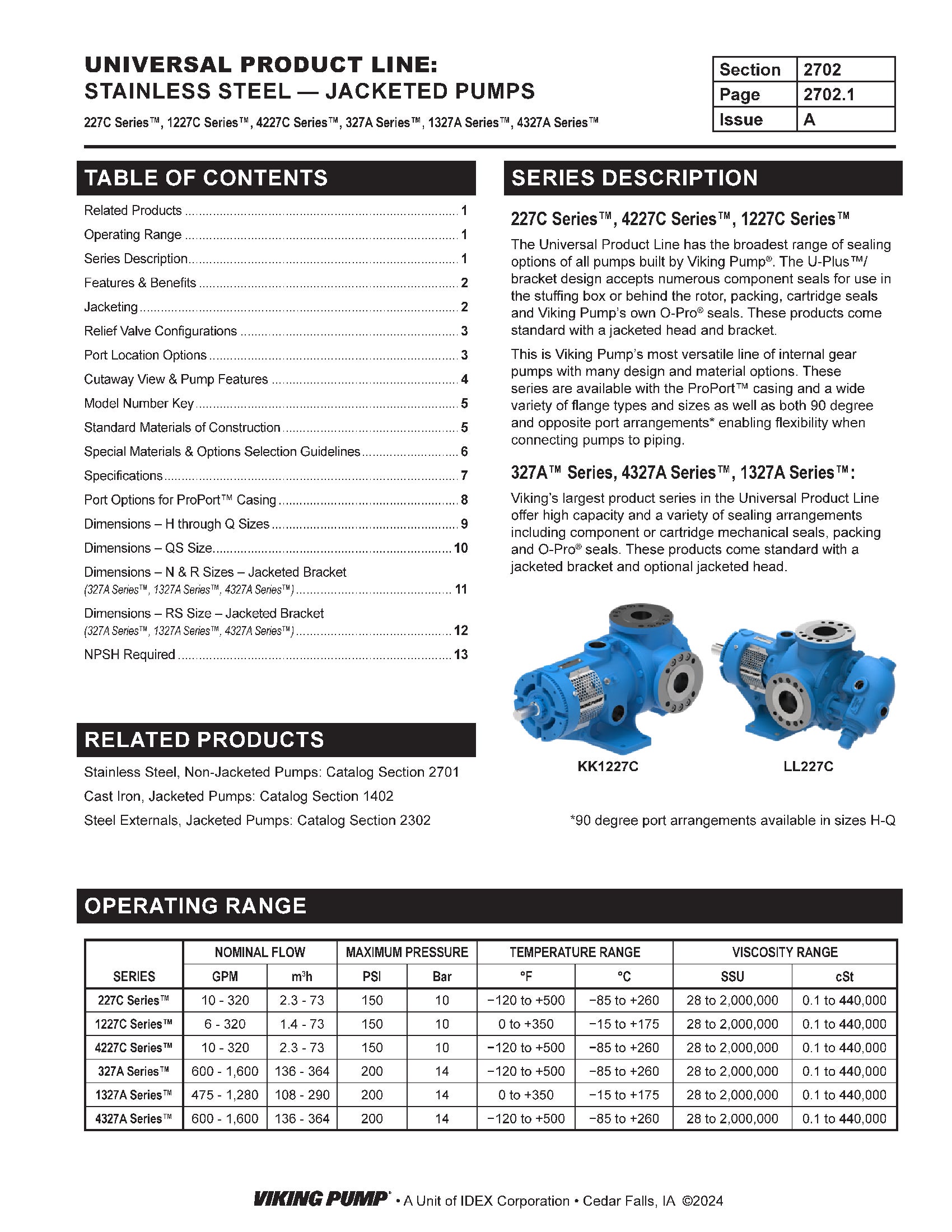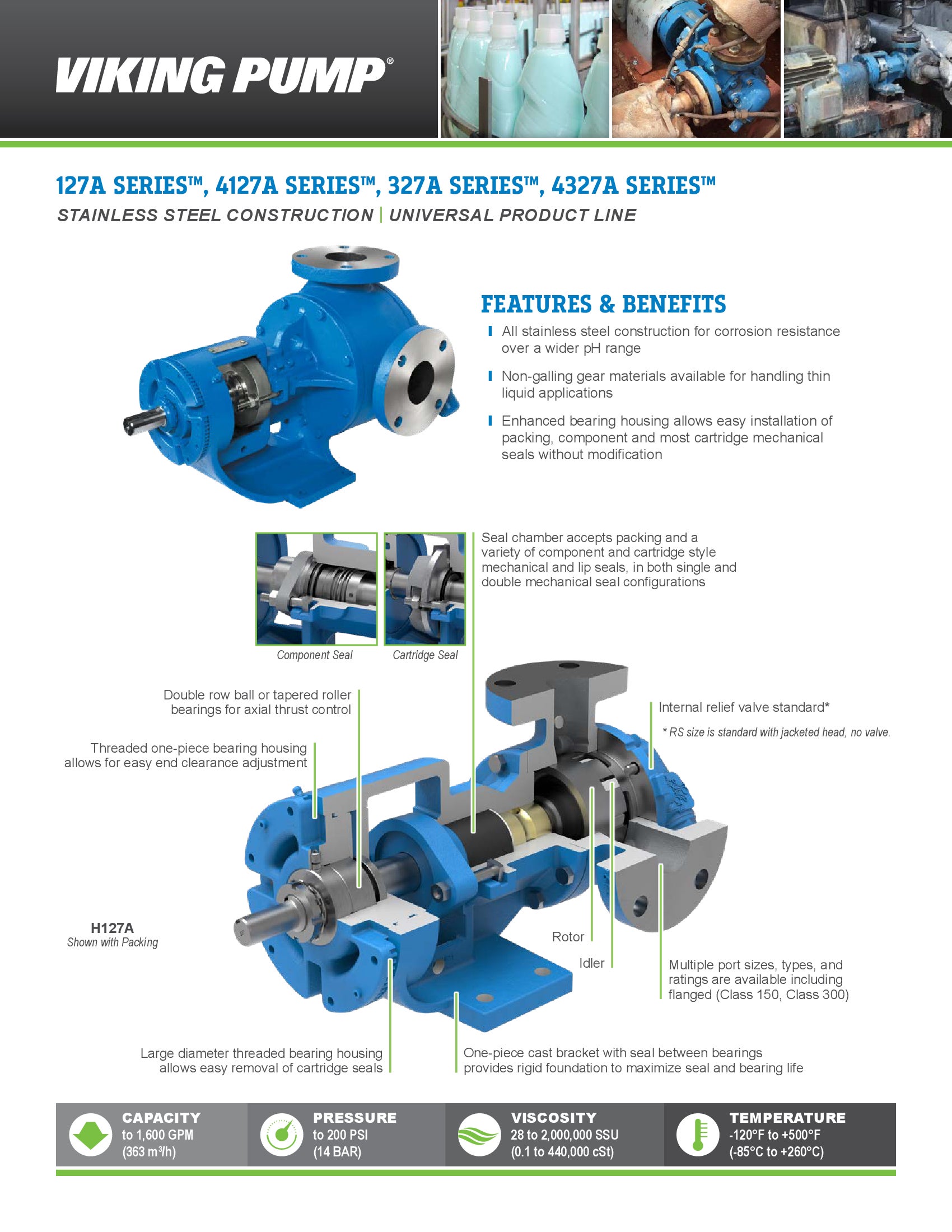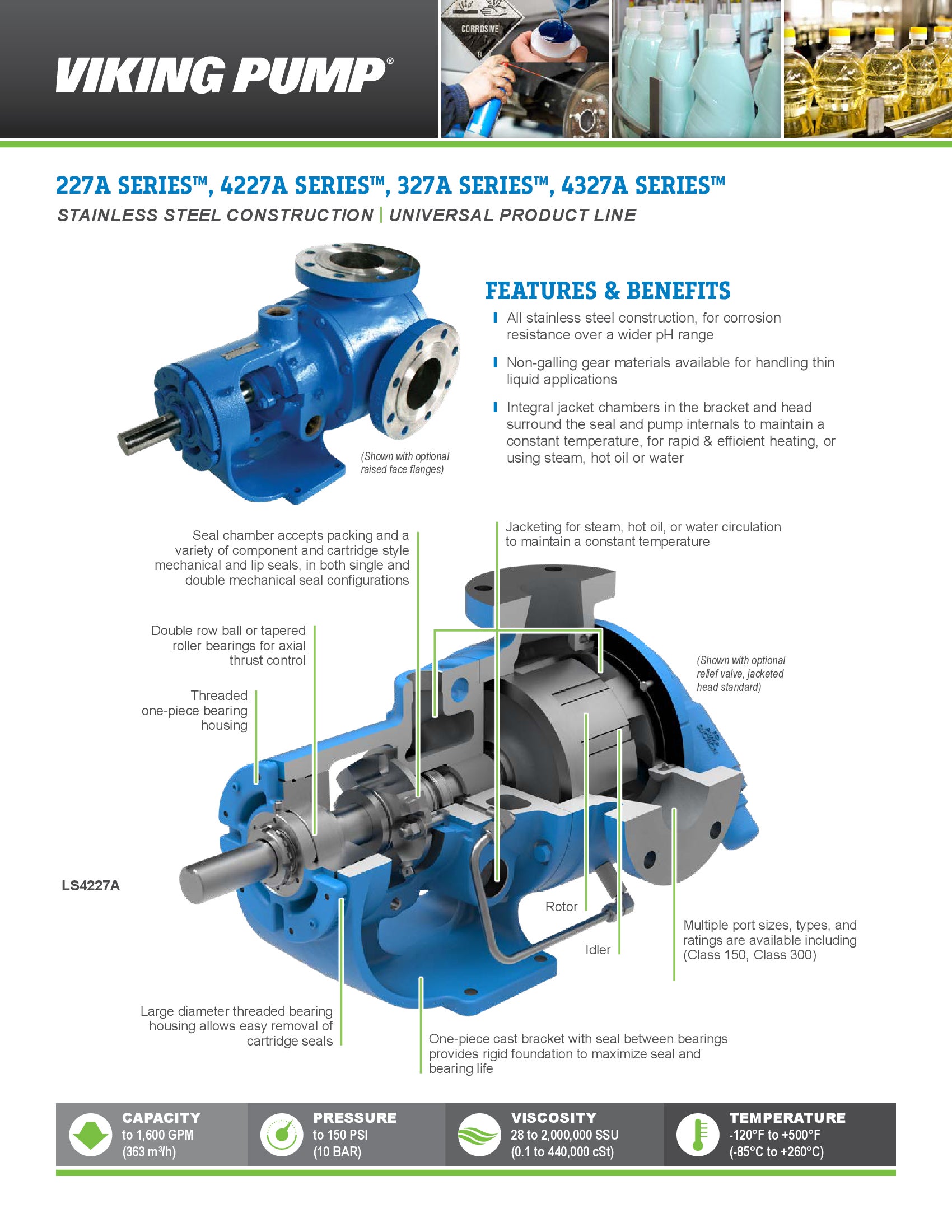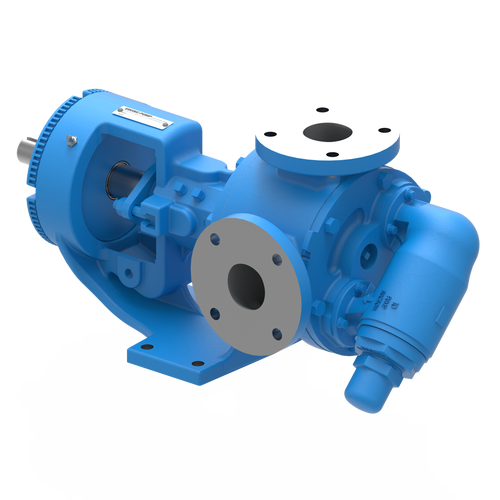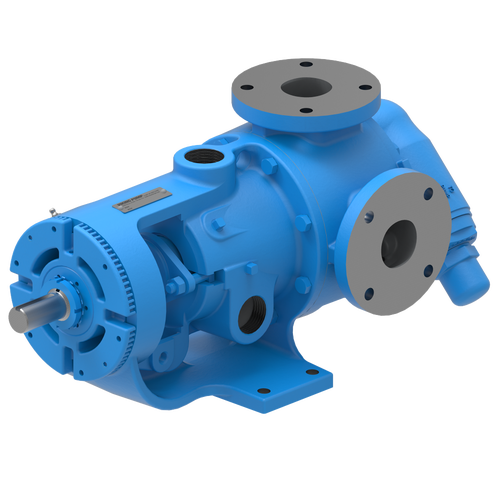The 327A Series™ internal gear pump is the perfect solution for soaps & surfactants, acids & caustics, and more because of its stainless steel construction for corrosion resistance over a wider pH range. It can handle flow rates from 500 to 1600 GPM (114 to 364 m³/h).
Features & Benefits
- All stainless steel construction for corrosion resistance over a wider pH range
- Non-galling gear materials available for handling thin liquid applications
- Enhanced bearing housing allows easy installation of packing, component and most cartridge mechanical seals without modification
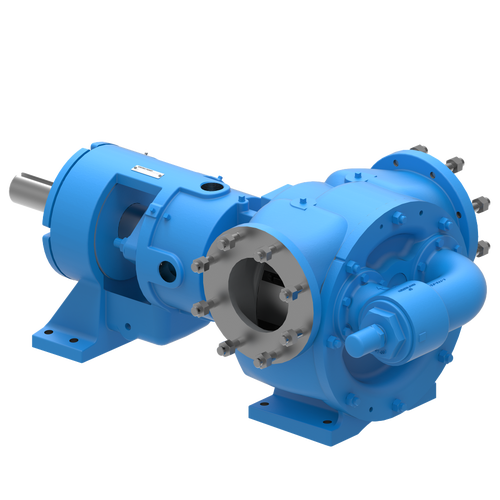
Capacity
500 to 1600 GPM
114 to 364 m³/h
Viscosity
28 to 2,000,000 SSU
1 to 440,000 cSt
Pressure
to 200 PSI
to 14 Bar
Temperature
-120 to +500 °F
-85 to +260 °C
Options
Porting
Drives
Mounting
Sealing
Specifications
| Model | Standard Port Size | Nominal Pump Rating (GPM) | Nominal Pump Rating (m3/h) | Maximum RPM | Maximum Pressure PSI | Maximum Pressure BAR |
|---|---|---|---|---|---|---|
| N327A | 6 | 600 | 136 | 350 | 200 | 14 |
| R327A | 8 | 1100 | 250 | 280 | 175 | 12 |
| RS327A | 10 | 1600 | 364 | 280 | 125 | 9 |
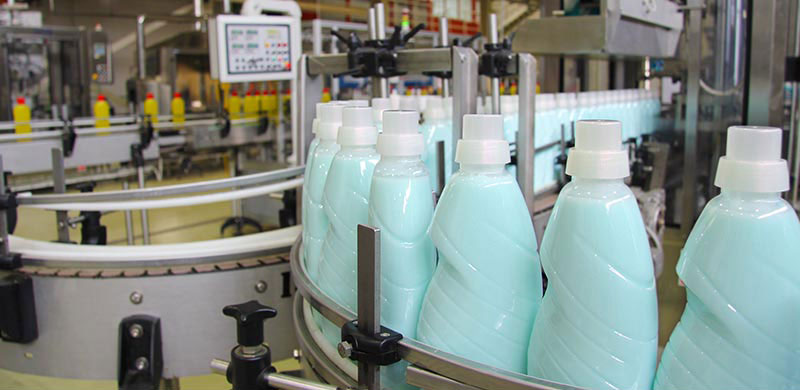
Soaps
Kettle soap, soap stock, soap skimmings, and liquid soap are a mixture of sodium salts of various fatty acids of natural oils and fats. Common soap is largely a mixture of the sodium salts of palmitic, stearic and oleic acids. Rosin soaps for laundry purposes are made by adding a soap made from rosin or rosin itself to an ordinary soap.
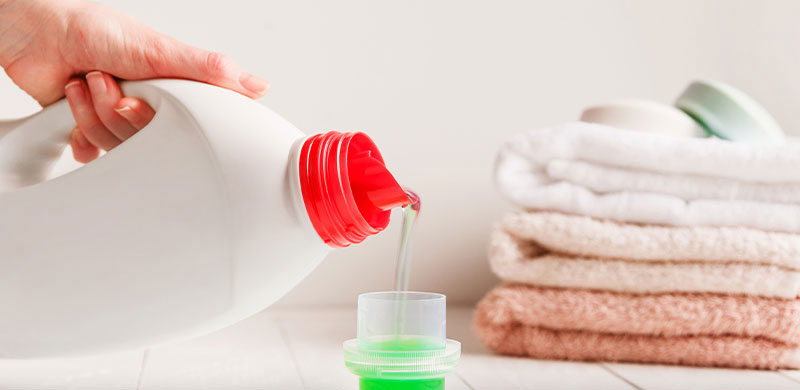
Detergent Gel
Detergent gels are surfactants used for their cleaning properties. These can be for laundry applications or used in dish washing and household cleaning activities.
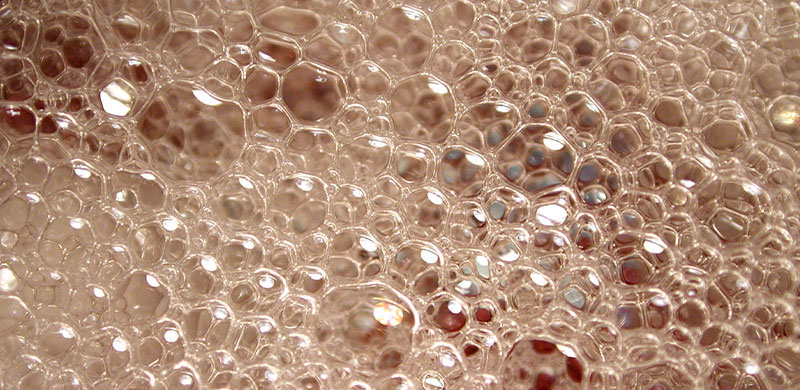
Surfactants
Surfactants reduce the surface tension of the liquid in which they are dissolved. Commonly used in cleaning products to emulsify oils and hold dirt or other particulates in suspension. Also used in chemical processing like ethanol production.

Acids & Bases
Extremes on the ends of the pH scale that can result in severe corrosion and chemical attack of the pump body, gears, bushings, and elastomers. Pump construction will ultimately be driven by the specific liquid being handled and the construction that offers the greatest chemical resistance.
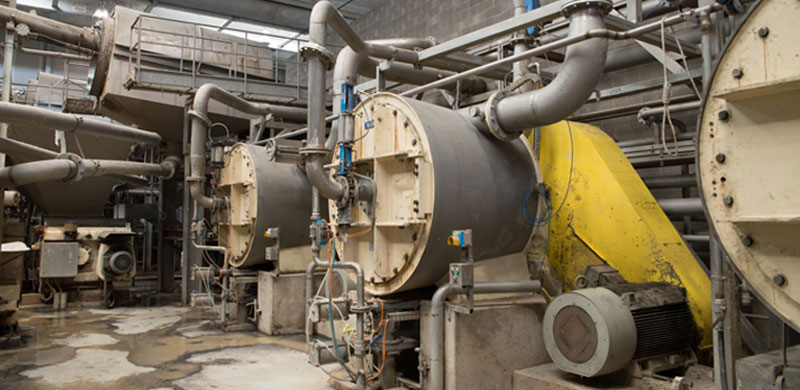
Caustic (Sodium Hydroxide)
Sodium hydroxide is soluble in water, alcohol and glycerol. It is used in the manufacture of other chemicals, rayon and film, petroleum refining, pulp and paper, making of aluminum, refining vegetable oil, in detergents, soaps, textile processing, in reclaiming rubber and as an alkali in foods. The viscosity ranges from water-thin to 40 cP depending on concentration and temperature.
-
DRAWINGS

N327A with Relief Valve - 6" Class 150 ANSI Opposite PDF
STEP
N327A with Jacketed Relief Valve - 6" Class 150 ANSI Opposite PDF
STEP
N327A with Plain Head - 6" Class 150 ANSI Opposite PDF
STEP
N327A with Plain Head - 5" Class 150 ANSI LH PDF
STEP
R327A with Jacketed Head - 8" Class 150 ANSI Opposite PDF
STEP
R327A with Relief Valve - 8" Class 150 ANSI Opposite PDF
STEP
RS327A with Jacketed Head - 10" Class 150 ANSI Opposite PDF
